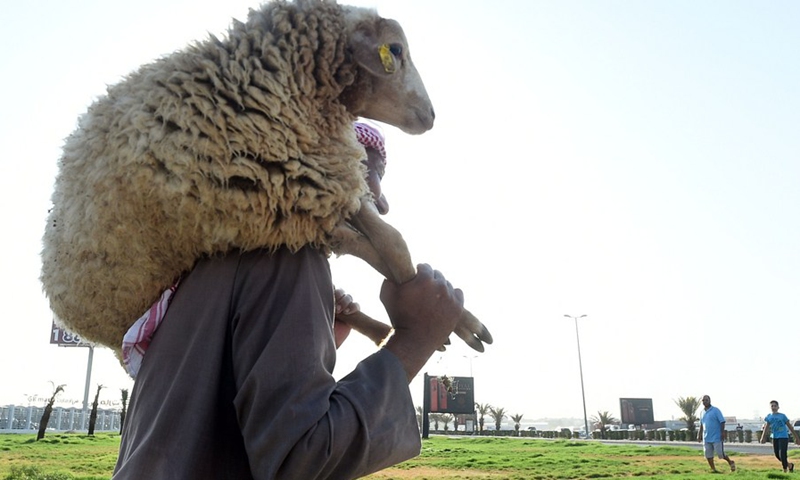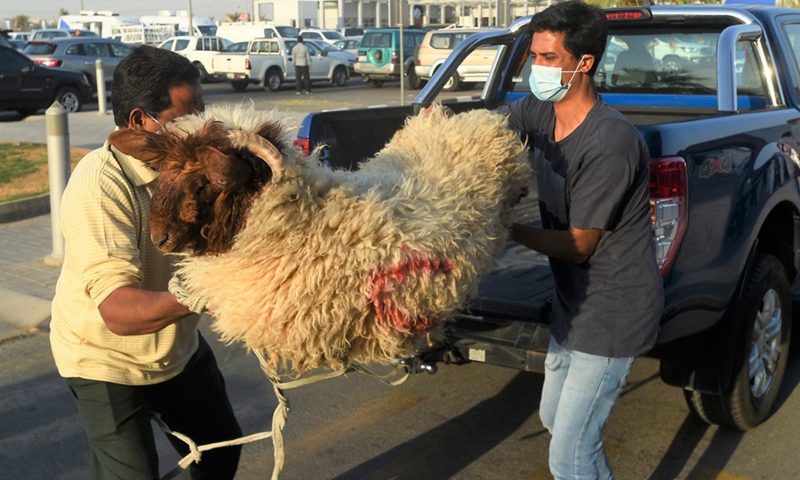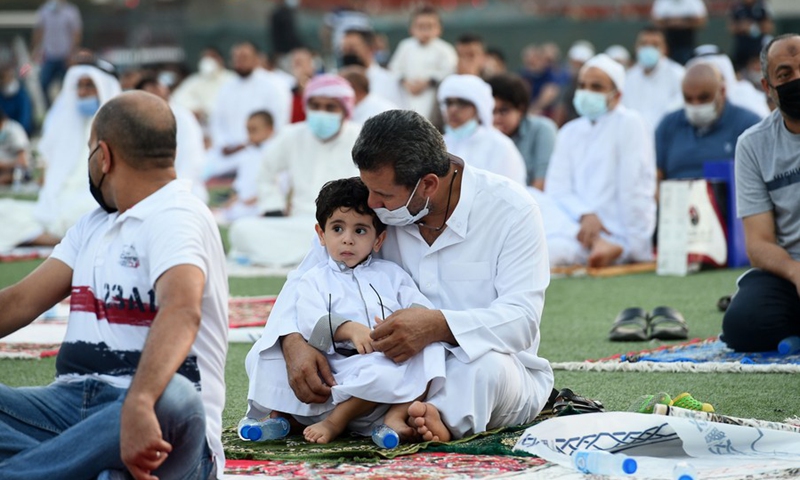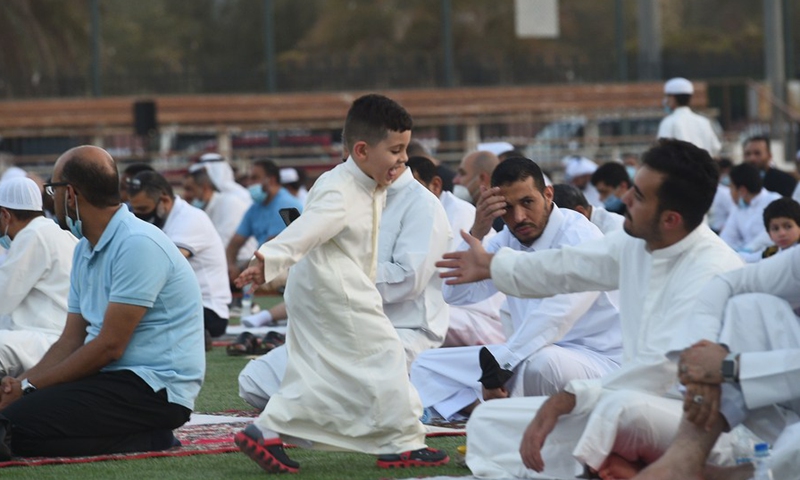
A man carries a sheep during Eid al-Adha holiday in Capital Governorate, Kuwait, July 20, 2021.(Photo: Xinhua)

People carry a sheep during Eid al-Adha holiday in Capital Governorate, Kuwait, July 20, 2021.(Photo: Xinhua)

People perform prayers during Eid al-Adha holiday in Hawalli Governorate, Kuwait, July 20, 2021.(Photo: Xinhua)

People perform prayers during Eid al-Adha holiday in Hawalli Governorate, Kuwait, July 20, 2021.(Photo: Xinhua)
After the Eid al-Adha prayer at a mosque on Tuesday, Ahmad Al-Salem, a 43-year-old Kuwaiti from Ahmadi Governorate, sacrificed a sheep.
On the first day of Eid al-Adha, or Festival of the Sacrifice, a large number of Kuwaitis flocked to the mosques across the country in the early hours of the morning, signifying that this year's celebration is greater than last year, Al-Salem told Xinhua.
"We feel more relieved and comfortable than before thanks to the rollout of (COVID-19) vaccination and the decreasing number of infections in our country," he said.
"We are now accustomed to following health requirements and wearing masks all the time outside," the man added.
The first day of Eid al-Adha in Kuwait this year seems more lively and active. Theaters in the country reopened to receive the audience after the long shutdown following the spread of the COVID-19 pandemic.
The Opera Theater in Salmiya will present The Rest while Abdulhussain Abdulridha Theater in Hawalli Governorate will host The Phantom of the Opera. Both plays are presented under the strict health requirements, and only vaccinated people are allowed to enter.
Heba Al-Majed, a 32-year-old Kuwaiti, told Xinhua that going to the theater or cinema is the only entertainment for children during the Eid holiday.
"I am grateful that theaters are back to show new plays, and we can enjoy them with our children," she said.
The livestock market in Shuwaikh area witnessed a great increase in demand for sacrifices.
Yasser Al-Hamad, a 39-year-old citizen, told Xinhua that the prices of sheep this year are reasonable.
"I bought an eight-month-old sheep for 100 Kuwaiti dinars (332 U.S. dollars), and it is an acceptable price," he said.
Islam, a Bangladeshi sheep seller in the market, said the business is going well despite the pandemic, especially on the eve of the Eid al-Adha.
The prices of sacrifices increased slightly compared to last year as the COVID-19 has pushed up the cost of imported goods, according to Islam.
At Kuwait International Airport, activity and vitality have been restored after a long stagnation, as a number of Kuwaitis prefer to travel during the nine-day Eid al-Adha holiday.
Omar Ahmed, an Egyptian pharmacist who resides in Kuwait, told Xinhua that he decided to come back to his country to spend the holiday with his parents.
"I have not visited my country for over two years, and Eid al-Adha is a good opportunity for my children to spend a beautiful holiday with my big family," he said.
